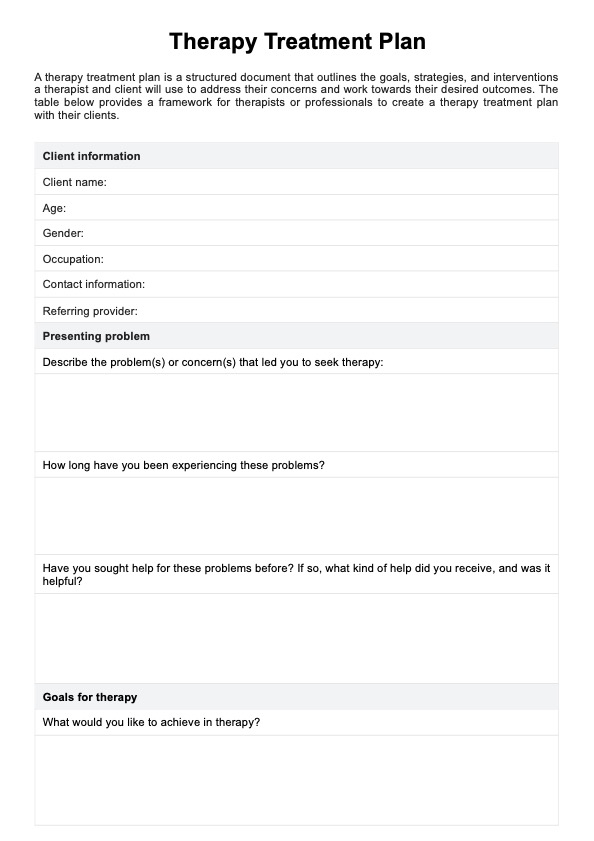Typically, a Therapy Treatment Plan is used at the start of therapy and is reviewed and revised as needed throughout the therapeutic process.

Therapy Treatment Plans
Get a free printable Therapy Treatment Plan and learn about the benefits of using this assessment, when to use it, and how to write one.
Therapy Treatment Plans Template
Commonly asked questions
Clinicians should gather basic information about the client, identify the presenting problem, establish goals for therapy, define clear objectives, and ask relevant questions to gather additional information about the client's background and circumstances before writing a Therapy Treatment Plan.
Therapy Treatment Plans can help you, first and foremost, with effective treatment planning. More specifically, they can aid in setting clear goals and objectives, ensuring that therapy is focused and effective, tracking progress, and adjusting interventions as needed.
EHR and practice management software
Get started for free
*No credit card required
Free
$0/usd
Unlimited clients
Telehealth
1GB of storage
Client portal text
Automated billing and online payments











